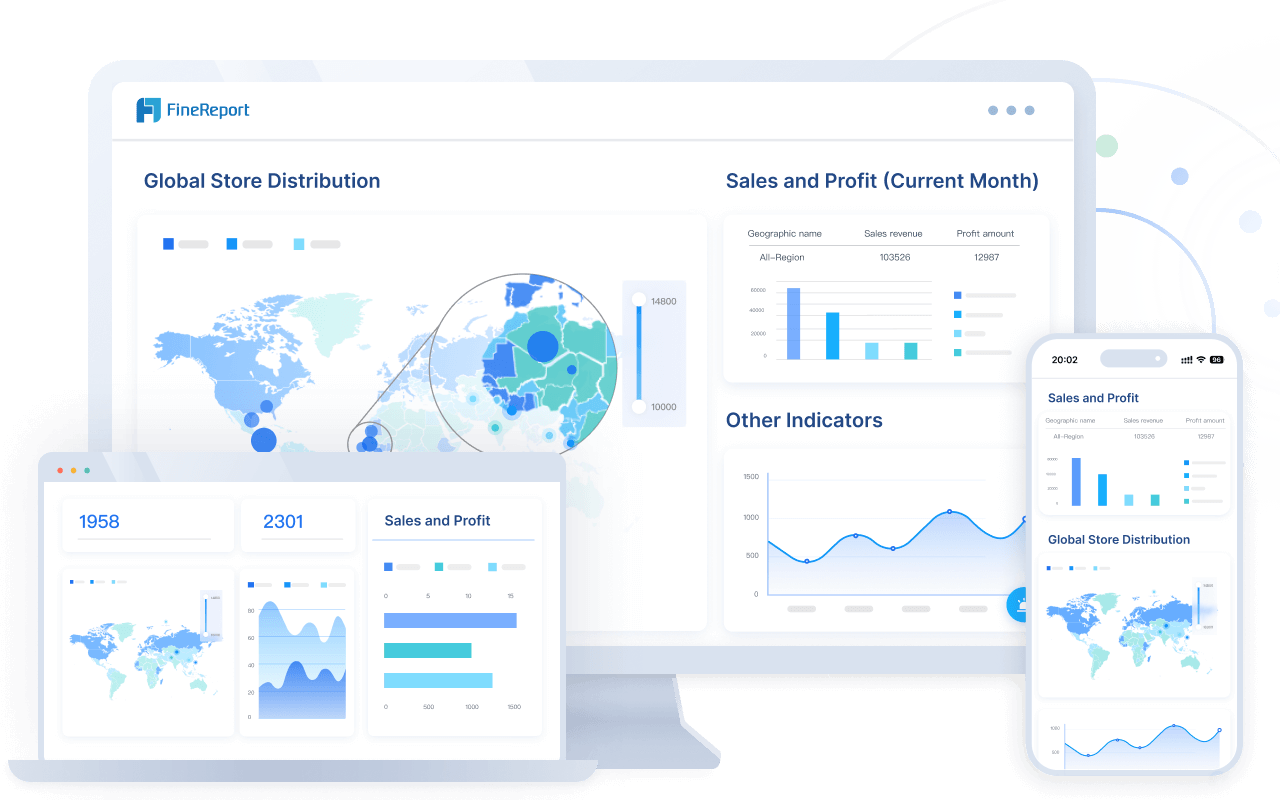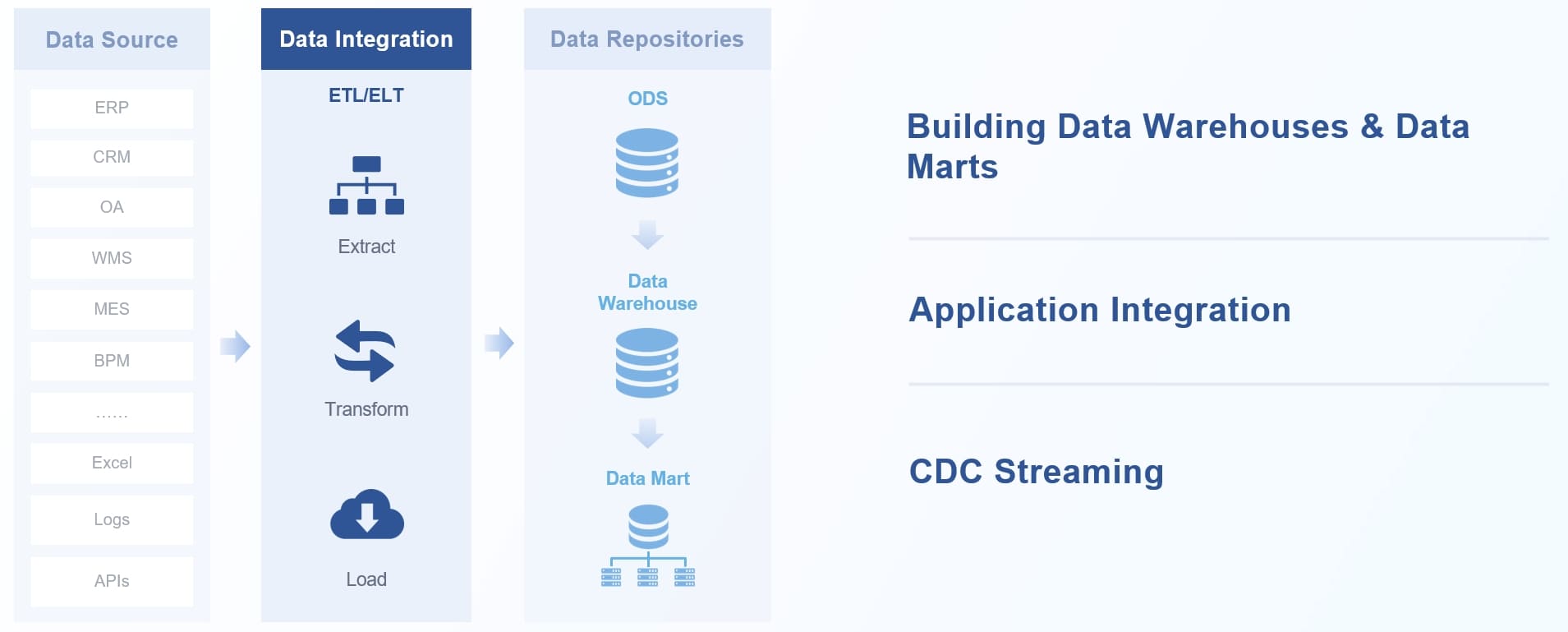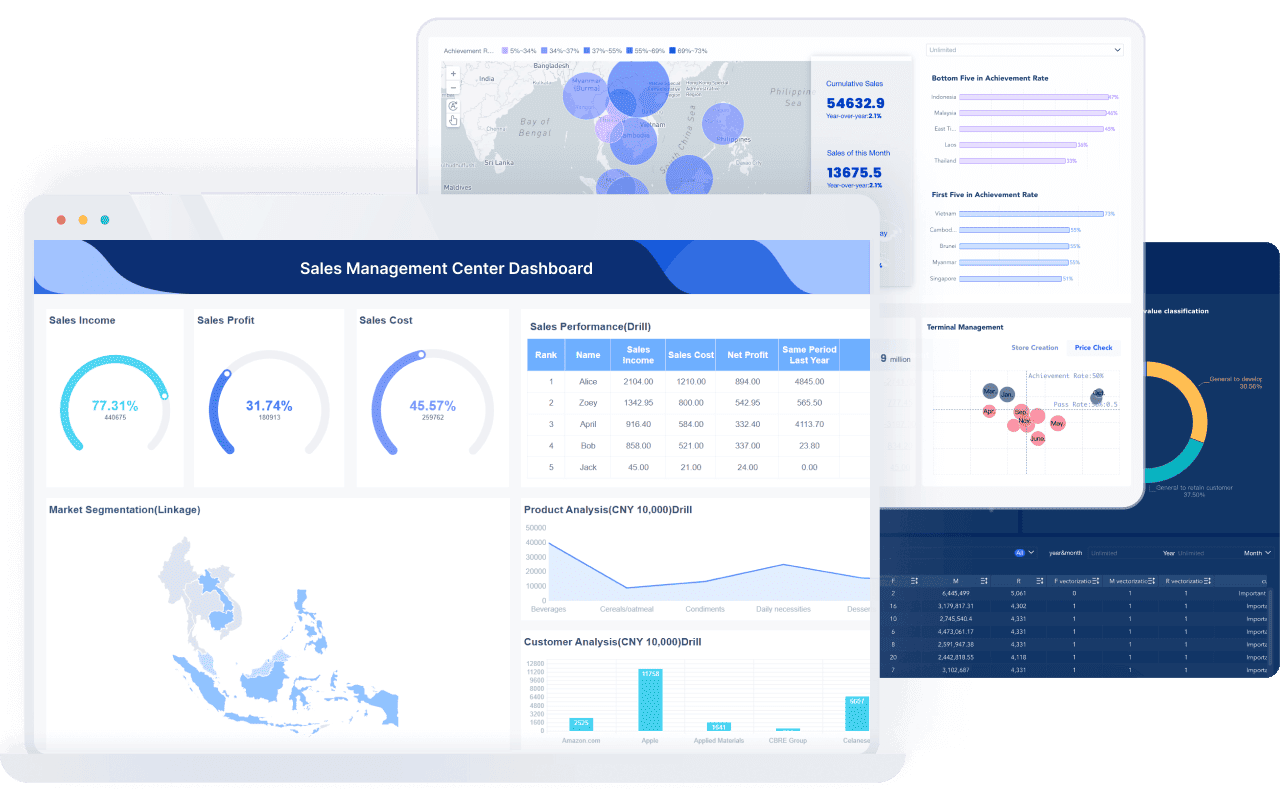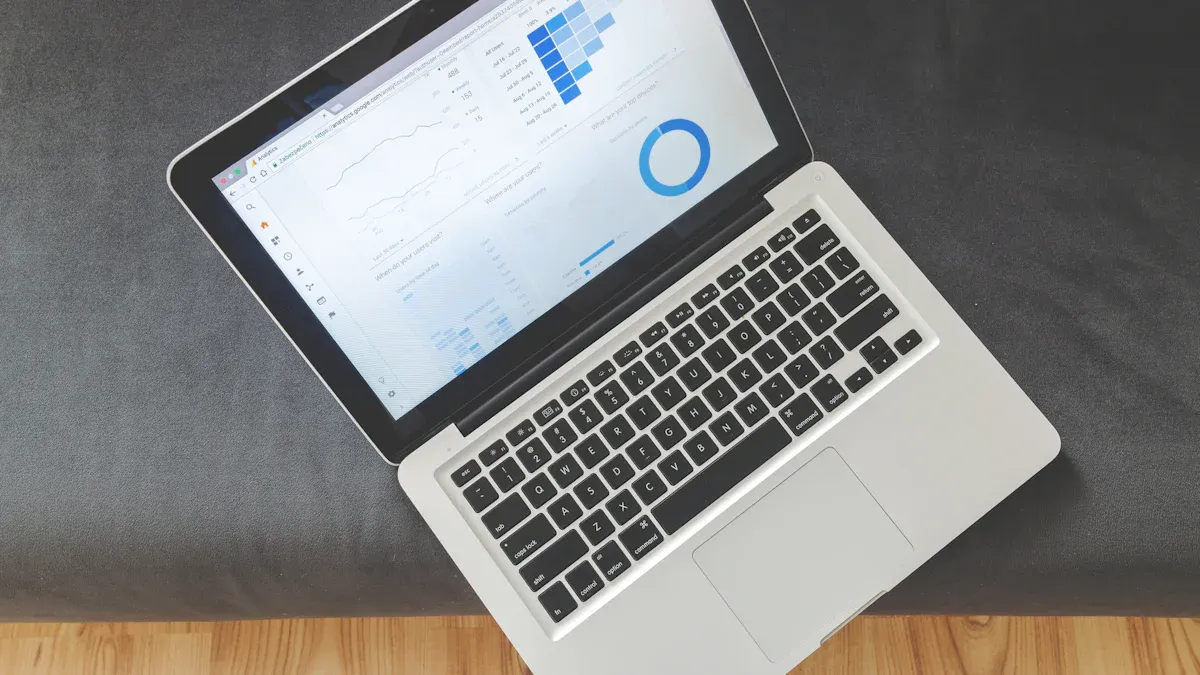You can land a remote data analyst job in 2025 by developing the right data science skills, building a strong portfolio, and earning certifications from leaders like FanRuan. Companies continue to seek professionals who can excel in remote data analyst job, even as hybrid models become more common. Recent trends show that hybrid and remote work options for data analyst job seekers vary by experience, with mid-level roles offering 13% remote job opportunities. Entry-level remote data analyst job remain competitive, so you need to stand out with technical expertise and strategic job search tips. Remote data analyst job reward those who show adaptability, strong communication, and a passion for data science. These tips will help you thrive in the evolving world of remote work for data science.
In the United States, data analyst jobs are in high demand, especially in major metropolitan areas like New York City and Washington, D.C. These cities are home to countless organizations in finance, healthcare, government, and technology, all of which rely heavily on data-driven decision-making. For example, many data analysts in New York work in the financial sector, helping firms optimize investments and risk management. Meanwhile, Washington, D.C. offers unique opportunities for data professionals in federal agencies and policy research organizations. Whether you're looking to join a fast-paced startup or a government institution, the U.S. job market for data analysts continues to grow rapidly.
You need a mix of technical and soft skills to succeed in remote data analyst job. Employers want you to master data cleaning, pattern identification, and data visualization. You should know how to use tools like Tableau, Power BI, and Google Data Studio. Microsoft Excel, especially pivot tables and VLOOKUP, remains important. SQL helps you query databases, while Python and R let you automate tasks and build machine learning models. These are key skills for a remote data analyst job.

Here is a table that shows the most important skills and tools for remote data analyst job in 2025:
| Skill Category | Key Skills and Tools | Explanation |
|---|---|---|
| Programming Languages | Python, R, SQL, Julia | Core for data manipulation, statistical analysis, and emerging high-performance tasks. |
| Data Visualization | Tableau, Power BI, Looker | Essential for creating dashboards and communicating insights visually. |
| Advanced Excel | PivotTables, Power Query, VBA | Foundational for rapid data analysis and modeling. |
| Big Data Technologies | Apache Spark, Hadoop, Google BigQuery | Handling large-scale datasets and distributed computing. |
| Cloud Platforms | AWS, Azure, Google Cloud | Managing data pipelines and analytics workflows remotely. |
| Machine Learning & AI | Basic ML algorithms, AI integration, AutoML | Enhances decision-making and reduces manual processing time. |
| Automation & Scripting | Python/R scripting, Robotic Process Automation (RPA) tools like UiPath, Automation Anywhere | Improves efficiency by automating repetitive tasks. |
| ETL Tools | Apache NiFi, Talend, dbt | Extracting, transforming, and loading data from multiple sources. |
| Soft Skills | Communication, Collaboration, Adaptability, Attention to Detail, Project & Time Management, Critical Thinking, Business Acumen | Crucial for teamwork, continuous learning, precise analysis, and aligning data insights with business goals. |
| Emerging Trends | AI-powered analytics, Real-time data analytics, Data privacy, No-code/low-code platforms, Blockchain | Impact how data analysts work and the tools they use in 2025. |
You will also need strong soft skills. Employers value creative thinking, analytical thinking, and technological literacy. Curiosity and lifelong learning help you keep up with new tools in data science. Adaptability is one of the fastest-growing skills because remote work changes quickly. You must communicate well, lead projects, and manage your time. These tips will help you stand out, especially when you apply for entry-level remote data analyst job.
Tip: Focus on both technical and soft skills. This balance will help you grow in remote data analyst job and move up in your career.
If you want to break into entry-level remote data analyst job, start by building a solid foundation in these areas. Practice using BI tools, learn SQL, and try simple machine learning projects. Show your ability to work independently and solve problems. Employers look for people who can blend technical knowledge with strong communication and teamwork. These qualities are essential for remote job success in data science.
To land a remote data analyst job in 2025, you need to focus on building the right skills. Employers look for candidates who can use data tools, understand programming languages, and communicate insights clearly. You should also know how to manage and integrate data from different sources. Let’s break down the most important areas for your skill development.
You must master several technical skills to stand out as a remote data analyst. Here are the essential skills you should focus on:
You will often use programming languages in your daily work. The table below shows the most common languages and their uses in remote data analysis:
| Programming Language | Usage in Remote Data Analysis and Data Science |
|---|---|
| Python | Data manipulation, visualization, machine learning, GIS tasks. Easy to learn and widely used. |
| R | Statistical analysis, data mining, and graphics. Good for analytical tasks. |
| SQL | Querying and managing relational databases. Essential for Data manipulation. |
| MATLAB | Matrix processing and digital image processing. Used in engineering contexts. |
| C++ | High-performance tasks and building machine learning tools. |
| Java | Big data frameworks, statistical analysis, and visualization. |
| JavaScript | Advanced data visualization tasks. |
You should practice using these languages and tools to build your technical skills. Employers want to see that you can handle real-world data challenges.
You will often work with data from many sources. FineDataLink, a modern data integration platform, helps you synchronize, transform, and manage data in real time. With FineDataLink, you can connect over 100 data sources, automate ETL processes, and build efficient data pipelines. This platform supports your skills in data integration and ensures you deliver high-quality analysis. Learning to use FineDataLink will make you more valuable to employers who need seamless data management.


To boost your career, you should pursue specialized certifications. FanRuan certifications are industry-recognized and show your expertise in BI and data analysis. These certifications cover different levels, from entry-level to advanced, and target students, data analysts, report engineers, and BI engineers. When you earn a FineReport or FineBI certification, you prove your mastery of these tools and your ability to handle complex data tasks. Certified professionals often receive higher salaries and exclusive job recommendations. FanRuan also provides resources like training videos and help documents to support your learning journey. By earning these certifications, you keep your skills up to date and stay competitive in the job market.
Tip: Keep learning and updating your skills. The data analytics field changes quickly, so continuous improvement will help you succeed.
Creating a strong portfolio and a professional online presence will help you stand out in the remote data analyst job market. Employers want to see real-world examples that demonstrate your skills and your ability to work independently. You can build your portfolio by showcasing projects, sharing your work online, and optimizing your LinkedIn profile for remote job opportunities.
You should include several types of projects to showcase your skills. Employers look for data cleaning projects that show technical ability, data storytelling and visualization projects that highlight communication, and group projects that prove you can collaborate remotely. Advanced projects, such as building end-to-end systems or writing explanatory blog posts, show that you can solve complex problems.
You can use FanRuan tools like FineReport and FineBI to build your portfolio. For example, create interactive dashboards with FineBI to analyze sales trends or customer behavior. Use FineReport to design pixel-perfect reports that combine data from multiple sources. These projects will demonstrate your skills in data integration, visualization, and business intelligence. Employers value candidates who can use industry-standard tools to deliver insights.

Tip: Add a README file to each project. Explain your goals, methods, and results. Clear documentation helps employers understand your process and impact.
You should host your projects online to increase visibility. GitHub is the best place to share your code and analysis. Make your repositories public, write clear README files, and use Jupyter Notebooks or R Markdown for well-commented code. Pin your best projects to your GitHub profile. You can also build a personal website to organize your work and tell your story. Use GitHub Pages or other free tools to create a simple site that links to your projects and blog posts. Regularly update your online portfolio to show ongoing learning and engagement.

A well-optimized LinkedIn profile increases your chances of being found by recruiters for remote data analyst jobs. Use strategic keywords in your headline and summary. Highlight your achievements with numbers and results. Curate your skills section with both technical and soft skills, and ask for endorsements. Build your network by connecting with professionals and joining relevant groups. Use the 'Open to Work' feature and set job alerts for remote roles. Add links to your GitHub and personal website to showcase your skills online. Regularly update your profile to reflect new projects and skills.
Employers look for candidates who can demonstrate their skills, communicate clearly, and adapt to remote work. By building a strong portfolio and maintaining a professional online presence, you will increase your visibility and improve your chances of landing a remote data analyst job.
Searching for remote data analyst job in 2025 requires a strategic approach. You need to know where to look, how to tailor your resume, and how to apply for the right opportunities. The right job search tips will help you stand out and ace the interview process. Let’s explore the best places to find a remote data analyst job and how to maximize your chances.
You can find remote data analyst job on a variety of online platforms. Some sites focus on remote work, while others offer a mix of remote and hybrid roles. Knowing where to apply for the right opportunities will save you time and help you connect with top employers.
Many companies post remote data analyst job openings on their own websites and on popular job boards. You should visit these sites regularly and set up job alerts. Built In is a leading platform for remote data analyst job. It features a wide range of roles, easy apply options, and filters for remote work. You can upload your resume, join an online community, and receive job alerts for new postings. The table below highlights key details about Built In:
| Aspect | Details |
|---|---|
| Platform Name | Built In |
| URL | https://builtin.com/jobs/remote/data-analytics |
| Key Features | Wide range of remote data analyst and related roles; job filters; easy apply options |
| Notable Hiring Companies | Coinbase, Cash App, NBCUniversal, Spring Health, Upstart, firsthand Health Inc |
| Job Categories | Data Analyst, Business Intelligence, Data Engineer, Machine Learning, Analytics Manager, etc. |
| Skills Highlighted | Python, SQL, Snowflake, Tableau, Machine Learning |
| Work Options | Fully remote and hybrid roles |
| Additional Platform Info | Online community for startups and tech companies; allows resume upload and job alerts |
You should also check company career pages for remote job postings. Many organizations prefer to list remote data analyst job directly on their own sites. Upload your resume and apply for the right opportunities as soon as you see them. This increases your chances of getting noticed before the competition.
Specialized remote job platforms give you access to more targeted remote data analyst job than general job boards. Platforms like Outer Join focus on remote data science teams and offer advanced filters for data roles and remote-first positions. The Digital Analytics Association job board provides industry-specific filters, free resume reviews, and career insights. Arc.dev matches you instantly with remote jobs and connects you with vetted employers. These platforms often reveal unadvertised or startup roles and help you network with other professionals in the field.
General job boards such as LinkedIn, Indeed, and Glassdoor list many remote data analyst job, but they lack the depth and community features of specialized sites. Specialized platforms offer a curated experience, making it easier to apply for the right opportunities and find roles that fit your skills. You can also join online communities to network, share tips, and learn from others who work in remote data analyst job.
Tip: Always tailor your resume for each remote job application. Highlight your experience with remote work, your ability to ace the interview, and your technical skills. Use keywords from the job description to demonstrate your skills and show you are the right fit.
You should apply for the right opportunities as soon as you find them. Prepare for remote interviews by practicing common interview questions and showcasing your ability to work independently. Employers want to see that you can communicate well, manage your time, and demonstrate your skills in a remote setting. Use your online presence to network, share your portfolio, and connect with hiring managers. The more you engage online, the more likely you are to find the perfect remote data analyst job.
Building a remote career in data science gives you the chance to grow, learn, and connect with others from anywhere. You can shape your path by focusing on continuous learning, exploring career growth options, and staying updated with the latest trends. Let’s look at how you can thrive in remote data analyst job and become part of a strong community.
Remote data analyst job require you to keep learning new skills. You need to develop both foundational and advanced abilities in data analysis, collection, and visualization. You should also gain a basic understanding of AI and machine learning. This helps you work with automated systems and stay ahead in the field. Cybersecurity awareness is important to protect your data and your company’s information.
Tip: Set aside time each week for learning. Use e-learning platforms like Coursera or LinkedIn Learning to access flexible courses. These platforms let you learn at your own pace and fit study around your remote job.
You should also master digital collaboration tools such as Slack, Teams, and Zoom. These tools help you communicate and work with your team, even when everyone is remote. Many organizations now embed continuous learning into daily work through on-the-job training and upskilling programs. You can join online communities and network with other data scientists to share knowledge and stay motivated.
FanRuan offers a wide range of resources to support your learning. You can access detailed help documents, training videos, and webinars for products like FineReport and FineBI. FanRuan Certification programs help you prove your skills in data science and business intelligence. These certifications make you stand out in remote data analyst job and open doors to new opportunities. You can also join the FanRuan community to network, ask questions, and learn from experts.
You can start your journey in remote data analyst job with entry-level roles. Many people build their portfolios through freelance projects, virtual internships, or open-source contributions. As you gain experience, you can move up to senior data analyst positions. With two or three years of experience, you might specialize as a machine learning engineer, data engineer, or even a lead data scientist. Remote work fits well with these roles because you can analyze data, code, and report from anywhere. Many companies now support flexible work models, making it easier to grow your career in remote data analyst job.
To succeed in remote data analyst job, you must stay updated with new tools and trends. Join online communities and engage with the data science community to learn about the latest developments. You can network with other data scientists through virtual events, webinars, and forums. These connections help you find mentors, share ideas, and discover job opportunities. Regularly reading blogs, listening to podcasts, and following industry leaders will keep you informed. By staying active in the community, you build a strong network and keep your skills sharp.
Note: Take breaks, manage your time, and practice self-care. This helps you avoid burnout and stay productive in your remote job.
You can land a remote data analyst job by following these steps:
Click the banner below to try FineBI and FineReport for free and empower your enterprise to transform data into productivity!
How Do Data Analyst Jobs Differ in Startups and Big Companies?

The Author
Lewis
Senior Data Analyst at FanRuan
Related Articles

Self-Service Analytics Defined and Why You Need It
Self-service analytics lets you analyze data without IT help, empowering faster, data-driven decisions and boosting agility for your business.
Lewis
Jan 04, 2026

Best Self-Service Tools for Analytics You Should Know
See which self-service tools for analytics let business users access data, build dashboards, and make decisions faster—no IT help needed.
Lewis
Dec 29, 2025

Understanding Predictive Analytics Services in 2026
Predictive analytics services use data and AI to forecast trends, helping businesses make informed decisions, reduce risks, and improve efficiency in 2026.
Lewis
Dec 30, 2025